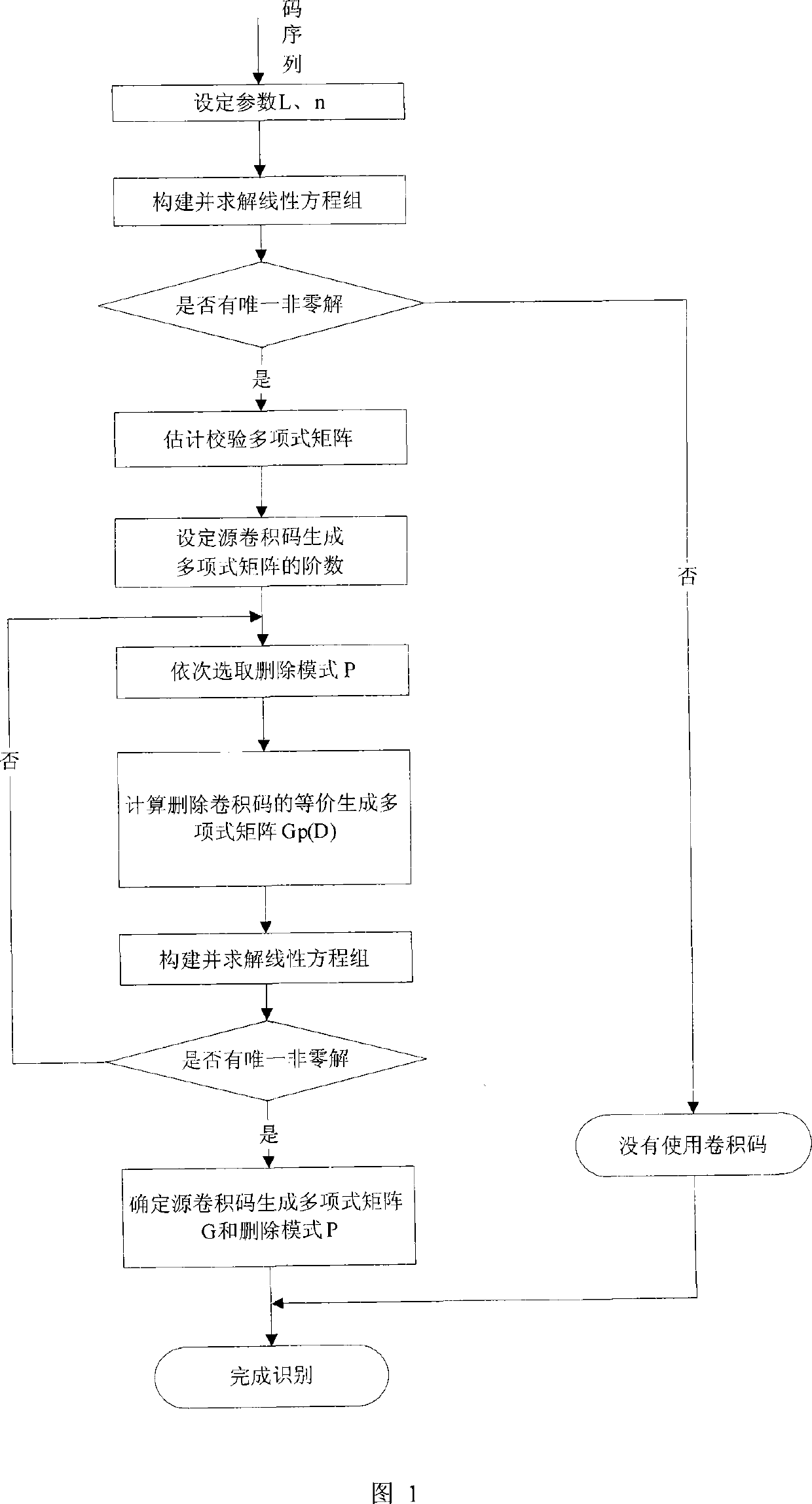A Blind Recognition Method of Erased Convolutional Codes with a Code Rate of (n-1)/n
A technology for deleting convolutional codes and n-1, which is applied in the identification field of deleting convolutional codes, and can solve the problems of limiting the scope of blind identification of deleted convolutional codes and large amount of operational redundancy.
- Summary
- Abstract
- Description
- Claims
- Application Information
AI Technical Summary
Problems solved by technology
Method used
Image
Examples
Embodiment Construction
[0072] Taking the receiving sequence of a digital communication signal that has adopted a certain section of convolution coding as an example, the implementation process of the present invention is set forth:
[0073] (1) The preset parameter L=10, the homogeneous linear equation system is constructed by the receiving sequence, and the estimated check polynomial matrix is H=[h 1 (D), h 2 (D), h 3 (D)]
[0074] (h 1 (D)=1+D 2 +D 3 +D 5 +D 6 , h 2 (D)=1+D 4 +D 6 , h 3 (D)=D+D 2 +D 3 +D 6 ).
[0075] It can be seen that the code rate of the convolutional code is 2 / 3.
[0076] (2) Assume the source code generator polynomial matrix according to the check polynomial matrix:
[0077] G(D)=[g 1 (D), g 2 (D)]
[0078] where g 1 (D)=g 10 +g 11 D+g 12 D. 2 +g 13 D. 3 +g 14 D. 4 +g 15 D. 5 +g 16 D. 6
[0079] g 2 (D)=g 20 +g 21 D+g 22 D. 2 +g 23 D. 3 +g 24 D. 4 +g 25 D. 5 +g 26 D. 6
[0080] (3) By the transformation model o...
PUM
 Login to View More
Login to View More Abstract
Description
Claims
Application Information
 Login to View More
Login to View More - R&D
- Intellectual Property
- Life Sciences
- Materials
- Tech Scout
- Unparalleled Data Quality
- Higher Quality Content
- 60% Fewer Hallucinations
Browse by: Latest US Patents, China's latest patents, Technical Efficacy Thesaurus, Application Domain, Technology Topic, Popular Technical Reports.
© 2025 PatSnap. All rights reserved.Legal|Privacy policy|Modern Slavery Act Transparency Statement|Sitemap|About US| Contact US: help@patsnap.com



